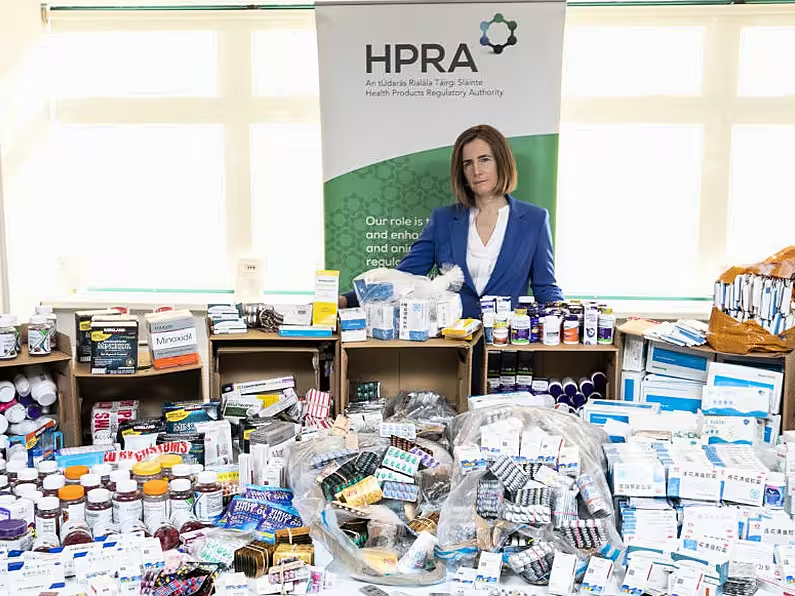Muireann Duffy
Sedative medicines, anabolic steroids and erectile dysfunction medicines were among the most common products detained by the Health Products Regulatory Authority (HPRA) in the first six months of the year.
The latest figures reveal almost half a million units of "falsified and other illegal medicines" were seized between January and June this year, with the regulator warning consumers against sourcing medicines online.
Of the 486,088 units seized, 28 per cent (137,587 units) were sedative medicines, 12 per cent (59,764 units) were anabolic steroids, and 9 per cent (41,635 units) were erectile dysfunction medicines.
Covid-19 medicines accounted for 43,707 of the detained units, while 33,542 units of analgesic medicines were also seized.
As part of its work, the HPRA also monitors online sources selling medicines into Ireland, with 287 websites, e-commerce listings and/or social media pages amended or shutdown during the six-month period.
Although the authority noted that the volume of detentions has fallen compared to previous years, it is still observing "significant levels of potent, prescription medicines that are being illegally supplied into Ireland".
"When you acquire medicines from unregulated sources, you simply have no idea what you are getting," the HPRA's director of compliance, Grainne Power, said.
"This isn’t merely about people wasting money on falsified or counterfeit products, it is also about the very real dangers of significant side effects, of using a product without supervision where there is no guarantee of what it contains and of experiencing interactions with other medicines being taken.
"All of these risks have the potential to make your condition worse or cause serious harm to health," she added.
Following the latest figures, the regulator has launched a multi-platform digital information campaign to highlight the "very real dangers presented when buying prescription medicines online".
"Given the fact that so many transactions take place online, it is particularly important and appropriate to highlight those risks through online channels and, where possible, to influence the decision of the buyer prior to purchase.
"We hope our campaign will make people stop and think before they seek to purchase prescription medicines online and ultimately persuade them not to use this route," Ms Power said.












